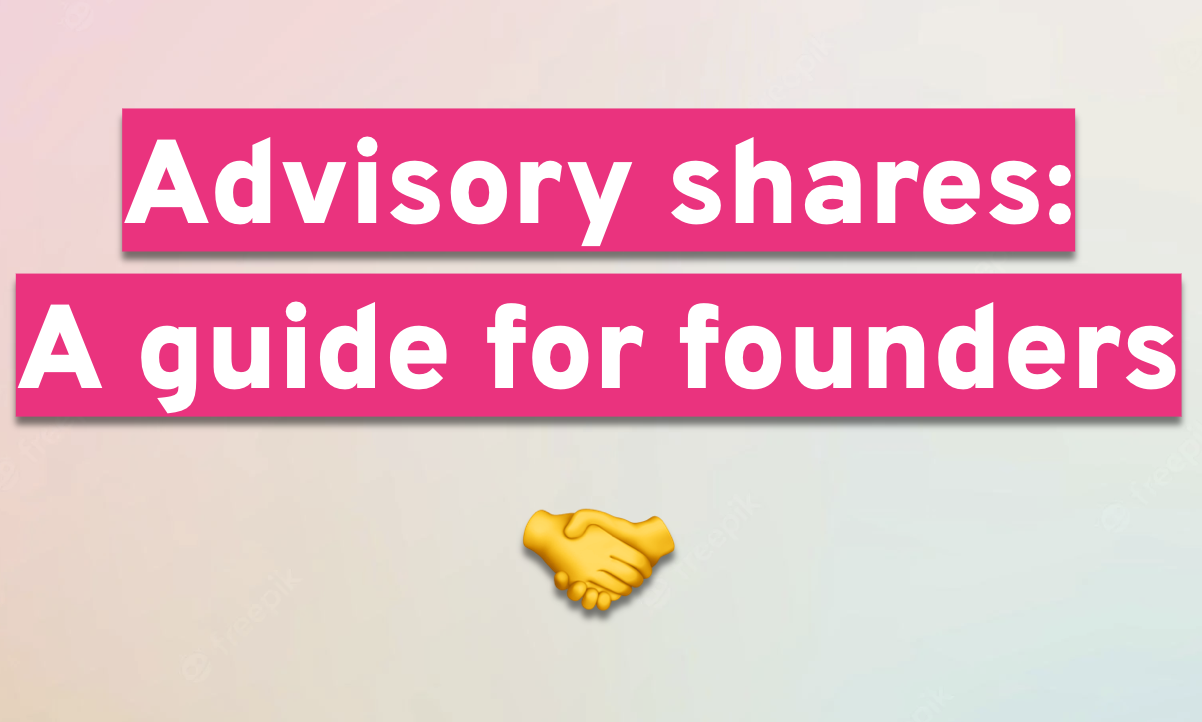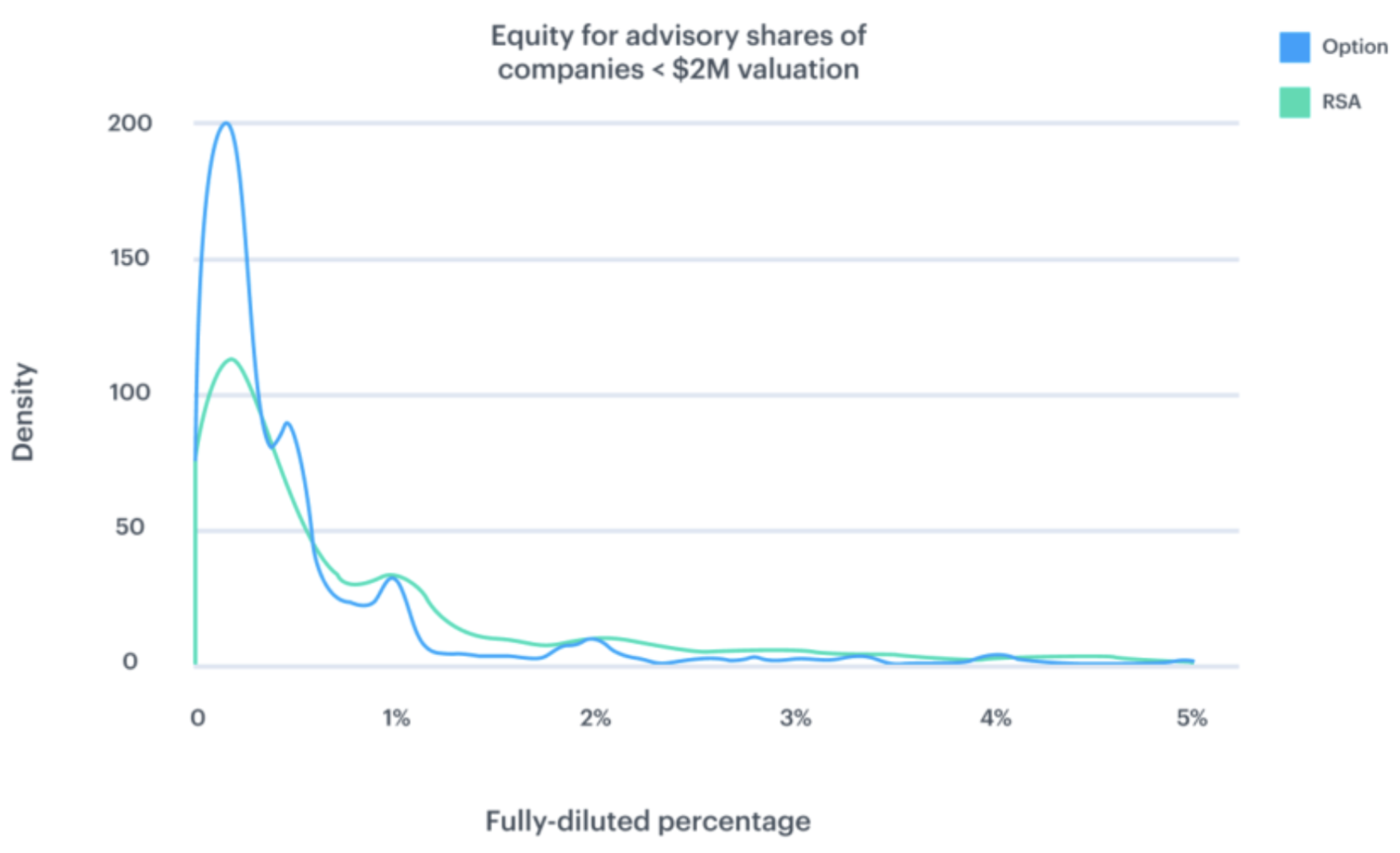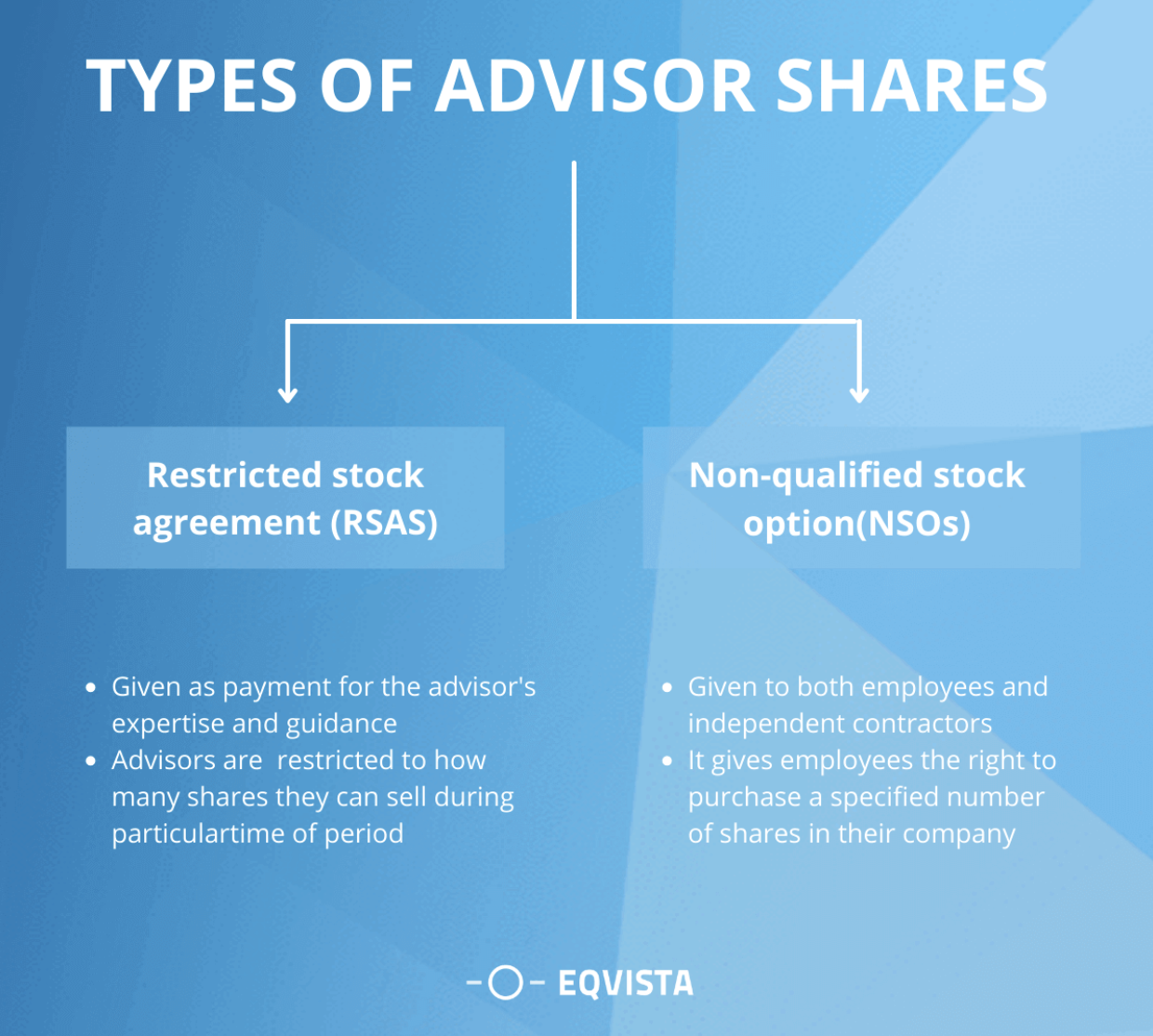

In the tech startup sphere, advisory shares are a double-edged sword. They're an interplay of equity, wisdom, trust, and strategy, potentially leading you to peaks or pitfalls.
Deciding who to entrust with these shares, how to correctly allocate compensation, and where to distinguish them from regular equity - these are critical questions for early-stage founders.
Let's venture into the realm of startup advisory shares, addressing the whys, whos, and hows - a key to an enlightened entrepreneurial path.
Advisory shares, also known as “advisor shares”, are a type of stock given to company advisors instead of employees. In other words they are financial rewards provided to advisors in the form of stock options (technically speaking, advisory shares are stock options given in exchange for expertise while regular shares are stock units sold on the open market). This is usually done at the “we really respect your time, expertise, and network but lack the funds to adequately compensate you” stage of the company (although more mature companies may also bring on advisors depending on the industry).
Why is this the case?
Because startups traditionally are limited in various aspects, especially when it comes to available capital to compensate advisors properly. Advisory shares allow for a startup, especially one in the earliest stages, to offer advisors a non-cash stock option in exchange for their expertise and time. This allows the startup to deploy their limited capital in other crucial areas.
Furthermore, advisory shares provide an incentive for advisors to remain with the company for the long haul. Rather than a simple one and done cash exchange, advisory shares are attractive to advisors because they incentivize them to offer strategic advice and connections as it connects their earning potential to the success of the company for the long term.
The advisors given advisory shares are usually business professionals who are former founders or senior executives in the same operating industry as the startup. The advisors provide insight and connections in exchange for equity in the startup.
Like anything startup related, founders need to exercise caution. They need to be careful of who they approach to be an advisor. Not everyone can provide the value that they may claim to have. In the best case scenario, an advisor can open doors and be a boon to the startup, positioning it for success. In the worst case scenario, they can be a waste of time and even a liability.

It should be noted that accountants, attorneys, and other professionals receive cash compensation for their services and are usually not advisors. This is especially the case if you don’t have a pre-existing relationship and are just looking to cut costs.
The right advisors are the people who can shore up a weakness that the founder or startup may have. Here are a few types of advisors to keep in mind.

According to Y Combinator partner Eric Migicovsky, a common set up is granting 0.25% to 0.75% of equity to the advisor - with a monthly vesting over 2 years.
It should also be noted that RSAs are larger because they are issued after incorporation but before there is an increase in the fair market value of a company. EQVISTA breaks it down further with this easy to use infographic.

It also helps to understand a vesting schedule. This is an incentive program instituted by the employer to give the employees the right to specific asset classes. It is used to incentivize employees to remain with the company for longer. But vesting doesn’t work the same way for advisors as it does for employees. The advisory share vesting schedules are usually two years (meaning the shares vest or are granted in monthly increments over a two year period). The advisor is not owed the entire vesting schedule if they stop being an advisor.
Some advisory agreements also call for a trial period - say 2 or 3months - where the deal can be terminated with no options being transferred to the advisor.
Keep in mind that advisors are not forever. You might need a product-oriented advisor at early-stage, and a more strategic advisor at later-stage. Your rooster of advisors will evolve over time, hence the 2-year vesting.
If you are going to be an advisor, you need to know the difference between advisor shares and equity. Here is a list to help you keep it in check.

Founders can’t know everything (and the ones that claim they do should be avoided at all costs). It is essential for founders to seek out the wise and offer them advisory shares. But it is just as essential for advisors to know how these shares work and how they can benefit. After all, when it works out, it is a win-win for everyone involved.
OpenVC is a radically open platform that helps tech founders connect with the right investors.